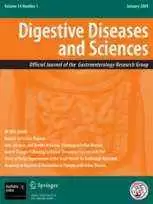
Celiac.com 11/25/2010 - Portal hypertension is high blood pressure within the portal vein and its tributaries. Non-cirrhotic intrahepatic portal hypertension (NCIPH) is portal hypertension that occurs within the liver, that is not triggered by cirrhosis. NCIPH is generally regarded to have a benign prognosis.
A research team examined whether gut-derived prothrombotic factors may contribute to the pathogenesis and prognosis of non-cirrhotic intrahepatic portal hypertension (NCIPH). Their results led them to conclude that gut-derived prothrombotic factors may in fact contribute to the pathogenesis and prognosis of NCIPH.
Celiac.com Sponsor (A12):
The team included C. E. Eapen, Peter Nightingale, Stefan G. Hubscher, Peter J. Lane, Timothy Plant, Dimitris Velissaris, and Elwyn Elias.
For their study, the team followed a cohort at a tertiary referral center. They analyzed prognostic indicators in 34 NCIPH patients. The team also looked for associated gut disorders.
Survival rates for transplant-free NCIPH patients from ï¬rst presentation with NCIPH at 1, 5, and 10 years was 94% (SE: 4.2%), 84% (6.6%), and 69% (9.8%), respectively.
Importantly, 18 patients (53%) showed decompensated liver disease.
Three patients (9%) showed ulcerative colitis while ï¬ve of 31 patients (16%) tested had celiac disease. Kaplan–Meier analysis showed that the presence of celiac disease was a predictor of shorter transplant-free survival for these patients (p = 0.018).
Multivariable Cox regression analysis showed that people who were older when ï¬rst presenting with NCIPH, those with hepatic encephalopathy, and those with portal vein thrombosis had lower rates of transplant-free survival
More than one-third (36%) of NCIPH patients showed elevated levels of initial serum IgA anticardiolipin antibody (CLPA), compared with just 6% with Budd–Chiari syndrome (p = 0.032, Fisher’s exact test) and no patients with celiac disease
without concomitant liver disease (p = 0.007).
Under the team's prognostic factors, 53% of NCIPH patients ultimately progress to liver failure, and their data suggest that intestinal disease plays a role in the pathogenesis of intrahepatic portal vein occlusion leading to NCIPH.
Source:
-
Open Original Shared Link






Recommended Comments
There are no comments to display.